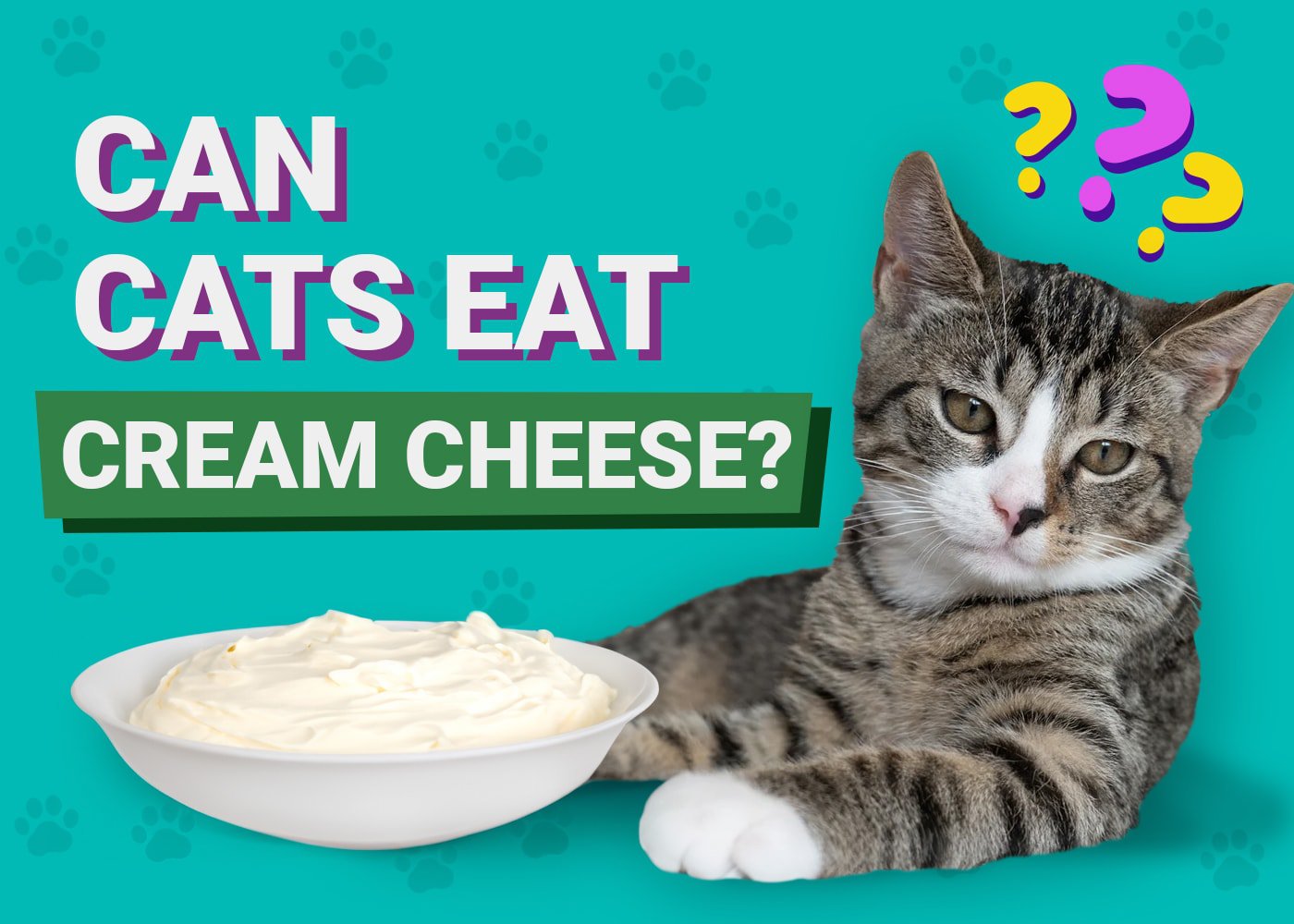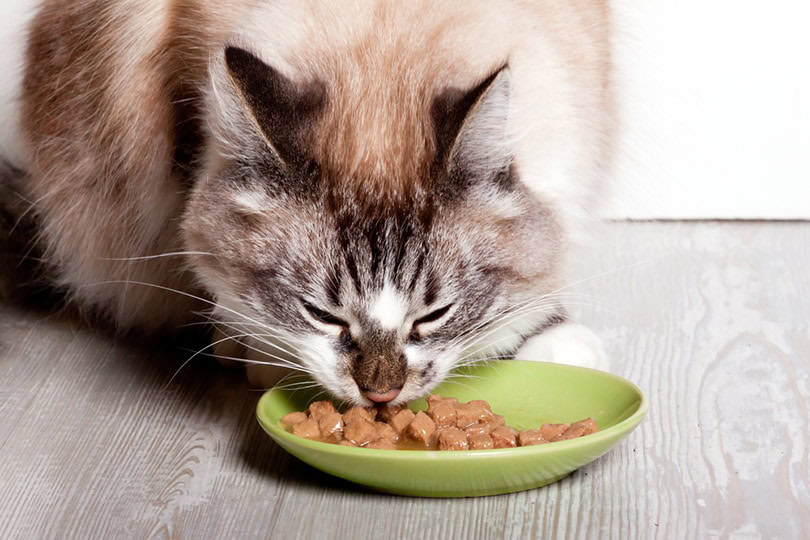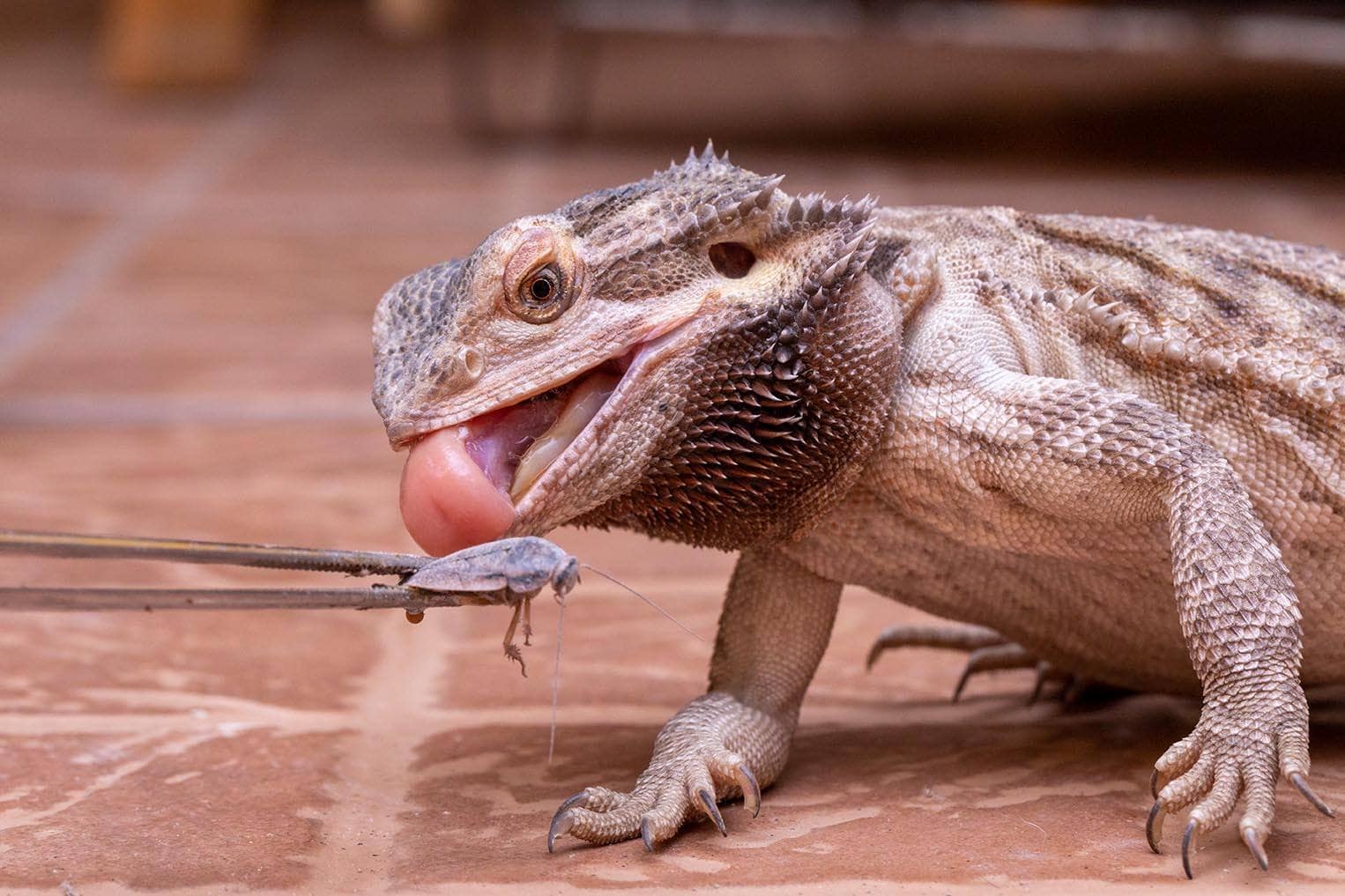VET APPROVED

The information is current and up-to-date in accordance with the latest veterinarian research.
Learn more »Click to Skip Ahead
Cats always beg for food, even when the food you’re pulling from the fridge isn’t for them. After what feels like an eternity of crying or begging, you may be understandably tempted just to give in and let your cat have what they want. However, if cream cheese is what your cat is craving, it’s best to keep it out of the kitty bowl.
While cream cheese is not technically toxic to cats, it doesn’t provide many benefits. It can cause serious gastrointestinal problems for felines. While feeding cream cheese to your cat may stop them from begging, it may cause some digestive issues later. If you want to learn why cream cheese has such a negative effect on cats, keep reading below.

Why Is Cream Cheese Not Recommended for Cats?
Cream cheese is a soft, spreadable cheese made from cream and milk. It has high amounts of lactose and too much fat, which isn’t healthy for cats. Lactose is a poor dietary choice for cats, considering many are lactose intolerant. If your cat ingests too much lactose, they can experience unpleasant side effects such as vomiting, diarrhea, bloating, and abdominal pain. Therefore, any product with lactose (which includes most dairy products) should be kept away from your cat.
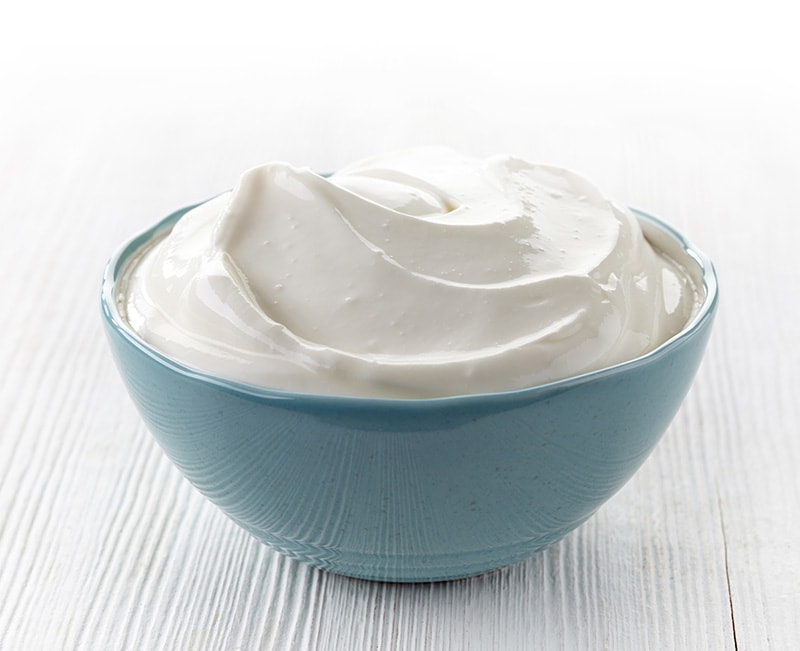
Why Milk (& Other Dairy Products) Are Difficult for Cats to Process
The idea of cats being lactose intolerant may be confusing to some. Aren’t cats supposed to love milk? After all, they’re shown lapping up milk in plenty of television shows. Not to mention, kittens drink their mother’s milk. So, what’s the truth?
Some cats might love milk, and some might be indifferent to it. It depends on the preference of the cat rather than a universal truth about what cats like. However, the fact remains that many cats are lactose intolerant. So, even if your cat enjoys lapping up milk, it isn’t a good idea for them to do so.
When it comes to kittens, however, they are not lactose intolerant–at least, not for a while. Young kittens still nursing from their mothers produce high amounts of lactase in their bodies, which is the enzyme responsible for breaking down lactose sugars found in milk. However, as the kittens grow older and are gradually weaned off their mother’s milk, their bodies stop producing as much lactase as before. This makes it much harder for your adult cat to digest milk or other dairy products.
Cats that cannot break down lactose sugars have unprocessed lactose in their system, especially in their intestines. Eventually, bacteria ferment the lactose in their system, potentially causing cramps and gastrointestinal distress.
If you have questions about this, it’s a good idea to consult with a veterinarian.
Does Milk Cause Worms in Kittens?
You may have heard from other cat owners that milk can cause worms in kittens. However, this warning is little more than a myth, and there is no factual evidence to prove that milk can lead to worms in kittens. It is uncertain how or where this myth originated, but some believe it may have sprung about because many young pets are susceptible to parasites.
When kittens are young enough to drink their mother’s milk, their immune systems are typically weaker than the average cat’s. Therefore, a parasite can easily infect your kitten’s body. Such occurrences may have caused some cat owners to mistakenly associate the presence of parasites with milk. The only time when drinking milk may have caused parasites in a kitten is if the mother was contaminated with the parasite when her kittens were feeding from her.
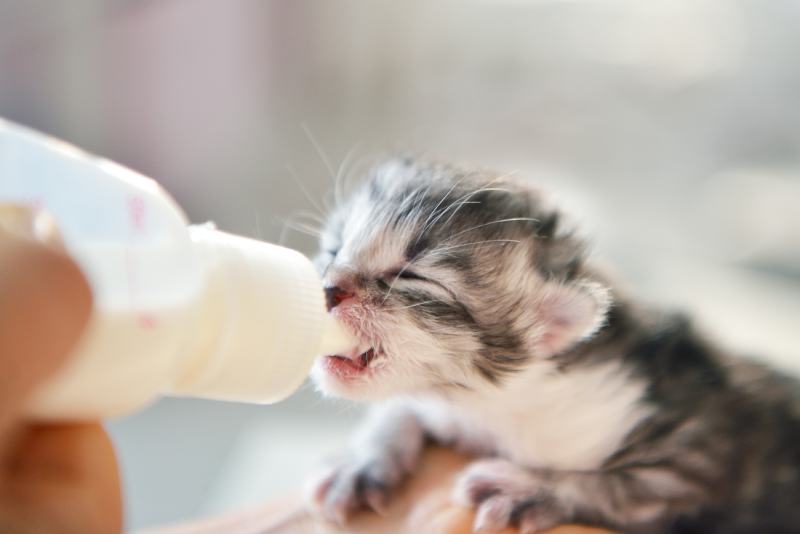
What to Do if Your Cat Has Eaten Cream Cheese
When your cat gets into something that they shouldn’t have, it can be easy to panic. Thankfully, there is likely no cause for concern regarding cream cheese. If your cat snuck a single bite of cream cheese, the worst you can expect is tummy cramping and digestive upset. Your cat may experience vomiting and diarrhea, but they should be just fine for the most part.
However, if your cat’s diarrhea is prolonged and accompanied by other signs, such as weakness, lack of appetite, fever, dehydration, or bloody stools, it is likely that they are experiencing a more serious problem. If you notice these signs, reach out to your vet right away.

Be Wary of Other Ingredients in Cream Cheese
While plain cream cheese is not likely to cause many issues for your cat, you need to be wary of other ingredients that could be extremely dangerous and potentially lethal.

Onions & Garlic
Any cream cheeses that contain onions, garlic, leeks, or chives must be kept away from your cats at all costs. These ingredients are members of the Allium family and are highly toxic to your cat. Ingestion of the ingredients may lead to gastroenteritis in your cat, which can cause nausea, drooling, vomiting, diarrhea, and abdominal discomfort. As bad as that sounds, that isn’t even the worst of it.
If your cat ingests a large portion of food with onions or garlic, they can experience damage to their red blood cells. Red blood cells are primarily responsible for transporting oxygen throughout the body. If your cat’s red blood cells are destroyed, they will struggle to receive oxygen in other parts of their body. This is known as anemia, which can be noted by signs such as weakness, paleness of the gums, rapid heart rate, elevated breathing rate, collapse, and even death.
Also, onion and garlic poisoning can take a while to reveal itself. It may not be apparent that your cat has been suffering for several days. Therefore, if your cat eats anything that contains an Allium family member, do not delay getting veterinary assistance. Just because your cat may appear fine does not mean that they are.
Chocolate
Another ingredient to be wary of is chocolate. Chocolate is toxic to cats and can cause concerning signs such as vomiting, diarrhea, increased thirst and urination, rapid heart rate, restlessness, and muscle tremors. It can cause seizures, coma, and even death in severe cases. Therefore, if the cream cheese in your fridge contains even trace amounts of chocolate, keep it away from your cat.
Knowing exactly what your feline companion can and cannot eat will help you become the best pet parent. Recognizing that not all cat bowls are equal is also key! The Hepper NomNom Cat Bowl sets itself apart from traditional options by catering to the specific needs of cats. The innovative design offers whisker relief via shallow dishes and promotes digestion with a slight bowl elevation. Find out if the Hepper NomNom is right for your cat by clicking here. At PangoVet, we’ve admired Hepper for many years and decided to take a controlling ownership interest so that we could benefit from the outstanding designs of this cool cat company!

Final Thoughts
Cream cheese is not a suitable treat for your cat since most cats are lactose intolerant. Plain cream cheese likely isn’t a cause for concern if your cat steals a bite; however, many cream cheeses with additional ingredients can be lethal to your cat, such as those with onions, garlic, or chocolate. If you are concerned that your cat has eaten something toxic, don’t hesitate to contact the vet. It is always better to be safe rather than sorry, and if your call to the vet ends up saving your cat from experiencing pain, they will be incredibly thankful for your foresight.
See also:
- https://www.petmd.com/cat/emergency/poisoning-toxicity/e_ct_human_food_poisoning
- https://www.petmd.com/cat/conditions/digestive/truth-about-dairy-products-and-pets
- https://www.vets-now.com/pet-care-advice/can-cats-eat-cheese/
- https://vcahospitals.com/know-your-pet/adverse-reactions-to-food-in-cats
- https://www.petmd.com/cat/conditions/digestive/truth-about-dairy-products-and-pets
- https://www.petmd.com/cat/nutrition/can-cats-eat-chocolate
- https://vcahospitals.com/know-your-pet/anemia-in-cats
- https://vcahospitals.com/know-your-pet/gastroenteritis-in-cats
- https://www.bloorcourtvetclinic.com/2019/03/21/garlic/
- https://vcahospitals.com/know-your-pet/diarrhea-in-cats
Featured Image Credit: Brent Hofacker, Shutterstock
